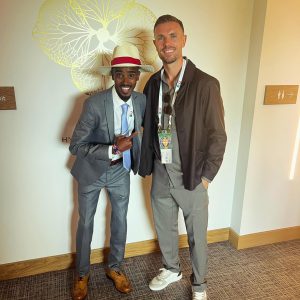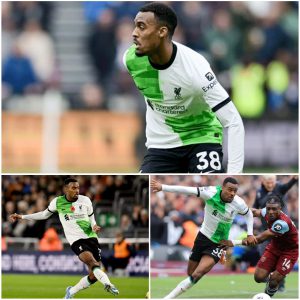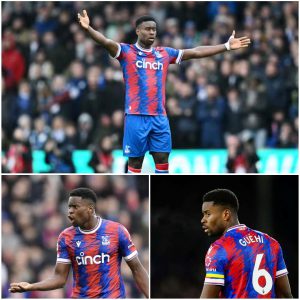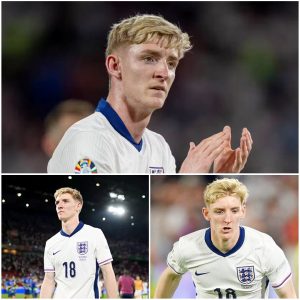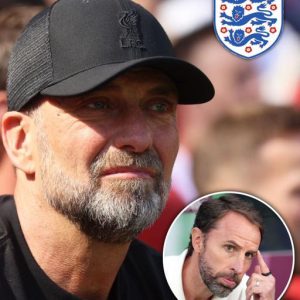If two English people pass each other when talking in a wooded area, there is a 99 per cent chance one or both of them will say: “Good morning”.

If two Portuguese people pass each other when in a street in Leipzig, there is a 99 per cent chance one or both of them will say: “Siuuuu.”
This is the scene ahead of Portugal’s opening game of Euro 2024 against the Czech Republic.
The team enter the tournament as one of the favourites to win the competition; they won all 10 qualifying matches, they look revitalised under attack-minded manager Roberto Martinez, and they have a squad that is the envy of almost the entire continent, perhaps only bar World Cup finalists France.
And yet, in the lead-up to the game, immediately before the game and during most of the game, held at Leipzig’s Red Bull Arena, the primary focus of the majority of the Portuguese fans in attendance is a 39-year-old striker who plays in the 27th best league in the world.

This is the enduring power of Cristiano Ronaldo.
Ronaldo shirts worn by fans outnumber any other player by around 10 to one. There are yellow Al Nassr shirts being worn outside the stadium, too, and, yes, regular cries of ‘Siuuuu’ puncture the air.
Inside the ground, the adoration for him only becomes more feverish. When the teams are read out about 50 minutes before kick-off, the volume level is akin to a goal having been scored.
When he warms up, they watch his every movement, they cheer the goals he scores and lament the shots he misses. No other player is taken notice of.
There’s an Al Nassr top with ‘Ronaldo 7’ on the back being worn in the press box, too; neutrality doesn’t exist when it comes to the cult of Ronaldo and there is another journalist who picks up her phone and starts filming whenever Ronaldo is on the ball.
There is a soap opera surrounding Ronaldo that will never cease, no matter how old he gets. This is a man who isn’t just admired, respected, celebrated and vaunted the world over; he is adored. There are fanatics who are devoted to Ronaldo’s very existence.

These people do not care one iota if Ronaldo is playing for Manchester United, Portugal, Al Nassr or Stalybridge Celtic.
Yet for all the clamour, noise and circus around Ronaldo, all the people who adore him and actively support him like a football club, or for all the people who despise his egotistical, tempestuous ways, in the eye of the storm things are pretty normal.
A year and a half ago at the World Cup, amid his dramatic exit from Old Trafford, his dynamite interview with Piers Morgan and his impending and controversial move to Saudi Arabia, the circus was unbearable.
Portugal manager Fernando Santos grew irritable at the incessant questions about Ronaldo in any given press conference. The two had enjoyed a productive relationship as manager and captain, but you can well imagine Santos being irked at the implication that Ronaldo managed the dressing room and ergo the team (remember the forward coaching the players from the sidelines during the final of Euro 2016).

Santos dropped Ronaldo in Qatar, a bombshell moment which followed a succession of poor performances (he went into the tournament goalless in eight of his previous nine internationals) and some finger-shushing after being subbed against South Korea. His replacement, Goncalo Ramos, scored a hat-trick as Portugal hammered Switzerland 6-1, but in the quarters Portugal were undone by Morocco.
Santos left and his successor, Martinez, had an ideal opportunity — should he have the freedom to make that decision — to draw a line in the sand and effectively retire the 38-year-old from international football. Ronaldo had been dropped, he was past retirement age and playing in Saudi Arabia, all suitable reasons.
Instead, Martinez not only kept Ronaldo in the international fold, he made him front and centre of his ‘new’ era. Ronaldo started nine of 10 qualifiers, scored 10 goals and quickly reaffirmed his status as Portugal’s undisputed No 9.
Hence why, apart from the odd question about whether he is in the team on merit or reputation, Martinez has been able to field non-Ronaldo questions for the majority of his press conferences. After the Czech game, he wasn’t asked a single one about the 39-year-old, which felt unique for a Portugal manager’s press conference in the past 15 years.
Ronaldo had been fine during the Czech game, offering some nice link-up play (setting Vitinha in on goal with a lovely flick), a focal point for crosses when things got desperate and a target for through balls. Sometimes, sure, he gets in the way by drifting deep, probably due to boredom, and unsurprisingly given his age and position he has the fewest touches of any Portugal player, but also the most shots.
There are even fewer tantrums, by his standards, and he encourages and cajoles his younger team-mates as Portugal chase for a comeback victory which they leave until stoppage time to complete.
Others are the story; 21-year-old Porto winger Francisco Conceicao scores the winner, while 24-year-old midfielder Vitinha is man of the match.
In the middle of the circus, it’s not Ronaldo who matters, but around him — the fans, the media, social media — he’s still by far and away the biggest name in town.
Pedro Cunha is editor-in-chief of Portuguese football website Zero Zero.
“Despite his diminishing influence on the team — completely natural given he is 39 — Cristiano is still the most popular of the Portugal players when it comes to our readership,” Cunha says.
“The numbers make that brutally clear. People are still incredibly interested in everything he does.
“When the Czech coach spoke about Cristiano, 72,000 people read the article. When Cristiano spoke about Nacho, 50,000 people read it. These are actual numbers from our website.
“Those news lines were more widely read than our match pieces on Porto vs Benfica or Benfica vs Sporting, which always do well.
“Cristiano isn’t the all-powerful figure he once was on the pitch, but the interest levels are monstrous. He’s more popular than ever, particularly when he’s playing at a World Cup or European Championship.”
In terms of his performance, it’s a similar story for match two against Turkey.
Again, he is a productive member of Portugal’s attack, but this time there is clear frustration from Ronaldo, none more so than when chastising Joao Cancelo for not passing to him when Portugal have a run at goal. Instead, Samet Akaydin puts the ball into his own net past goalkeeper Altay Bayindir, but Ronaldo misses it as he is facing the other way in a huff.
Two other things define the afternoon, though.
First, if there is an indicative moment of how Ronaldo seems to be more of an unselfish team player in this Portugal side, realising his weaknesses and his mortality aged 39, then Portugal’s third goal epitomises it perfectly when he incomprehensibly elects to square the ball for Bruno Fernandes to score when through on goal.
Second, the number of pitch invaders hoping to get a selfie with him becomes farcical.
This is nothing new; 8,000 turned up to watch Portugal train in the lead-up to the tournament and a number forced their way onto the pitch, with goalkeeper Jose Sa slide-tackling one.
But the cultish band of pitch invaders reaches a low point in Dortmund, even if it starts nicely enough with Ronaldo beaming as he happily poses for selfie number one with an intrepid child, whose picture obviously goes viral and is plastered on the front page of German newspaper Bild the next day.
The second pitch invader, an adult male, is less welcome and Ronaldo has to remove the man’s arm from around his neck.
At full-time, five more (one even wearing a Turkey top) try their luck from a variety of angles, with the stewards struggling to cope and Ronaldo showing his dismay and impatience. One of the selfie hunters almost inadvertently causes an injury to Ramos, who is taken out by a sliding steward and hobbles gingerly to his feet.
“You can understand it was a difficult moment — if those intentions are wrong, the players are in danger,” Martinez says. “We should give a message to the fans: it’s not the right way. You’re not going to get anything out of it and what will happen is the (security) measures will get tighter.”
Ronaldo played the full match against both the Czech Republic and Turkey, an impressive feat and testament to his standards in fitness, nutrition and recovery.
Jose Blesa, Ronaldo’s friend, Al Nassr’s nutritionist and a professor at various universities, such as the European University of Madrid, told The Athletic that the striker didn’t do any specific preparations for the Euros.
“As throughout the year, the protocol has been the same because we have played matches every three or four days, around three matches every eight or 10 days,” he says.
“The European Championship is a continuation of what we have been doing throughout the season.
“What he does is pay a lot of attention to his recovery. He pays a lot of attention to his rest, to his diet, he understands what needs to be done. He doesn’t stop resting in order to be able to perform in the game, which is when he really has to perform. He is very intelligent and knows himself very well.
“Many times young players make a small mistake of wanting to train more, but when you are already at this age, what you pay special attention to is recovery.”
“(At Al Nassr) he is one of those with the lowest fat percentage and one of those with the highest percentage of muscle mass. As for the performance data, he is competing 95, 98 or 100 minutes per game.”
With 12 goals in 14 games since the World Cup, coupled with 58 in 64 for Al Nassr over that timeframe, Ronaldo’s goal record remains prolific, even if the opposition are substandard.
Ten of his 12 Portugal goals in that time have come against teams ranked 60 or lower in the FIFA rankings, with the other two coming against Slovakia, currently ranked 45, plus, of course, he is yet to find the net at what is his sixth Euros, despite another 66 minutes in the third game against Georgia, when he gave his worst performance of the three group games and was tetchy and frustrated when he came off.
“He hasn’t changed, he continues to play as usual,” says Marcelo Salazar, Al Nassr’s sporting director last season who will be one of the club’s heads of scouting in 2024-25. “What happens is that he reads the games very well. Depending on the game, he reads the situation and comes out of the box, he is there when he has to be.
“I see him focused as always in the Euros, always focused and performing at his best level.
“When I am asked about age, I say that soccer is a sport of performance. If a 20-year-old doesn’t perform, he’s out, if a 40-year-old performs, he’s in. And that’s it. Personally, the more we can enjoy Cristiano on the pitch, the better. Soccer is grateful for that.”
His contract is up in 2025, but when you hear Ronaldo talking of wanting to reach 250 Portugal caps (he is currently on 210 and, judging on the timings of his last 40 caps, he would need to still be playing in 2028 to reach that milestone, aged 43), the thought of retirement doesn’t seem to be close.
How long will he last?
“Well look, if you had asked me this question at the last European Championship, maybe someone would have said no, this tournament is the last one, but Cristiano does not set limits for himself,” Salazar adds.
“I don’t dare set limits for Cristiano. A World Cup, maybe another European Championship? With the advancement of medicine, what I see, the way that he takes care of himself, the passion he shows for the game… I don’t dare to put limits on him, who am I to do that?”
Blesa says the Cristiano effect is growing in Saudi Arabia.
“Fans from all over the world came to our stadium,” he says. “It was common to see people at the door of the sports city and they spent a whole week.
“They said they came from China, Italy or Japan and came exclusively to see him. They came every day and then the public in our stadium changed. Also when we travelled abroad, like to China or Iran, there were thousands and thousands of people.
“I don’t think the Cristiano phenomenon is comparable to that of other sportsmen today and the truth is that the fans’ treatment of him is unbeatable.”
Outside Arena AufSchalke in Gelsenkirchen, after Portugal’s 2-0 defeat by Georgia last Wednesday, there was an excited buzz.
People, including a couple of girls from Japan, were flocking around a tall figure who, from a certain angle, looked just like Ronaldo — and he wasn’t exactly discouraging their attention, given that he had Ronaldo’s hairstyle, Ronaldo-style earrings and was wearing a full Portugal kit with Ronaldo’s No 7 on his jersey and shorts.
The ‘Ronaldo’ outside the hotel (Tim Spiers/The Athletic)
Sandro Gil, 26, has been making the most of what he fears will be his last chance to watch his hero at a tournament. He turned up at the Portugal team hotel in Marienfield to pose for photographs with the Ronaldo who had gathered outside. Some of whom initially thought he was the real thing, but others were happy just to get a picture of a lookalike.
“Cristiano is my idol,” he says. “I have watched him for 20 years. Over the years, people started saying I look like him. Now I watch the videos and I try to make some of the same gestures to do things in the same way. I like his style.”
On Monday, this time in Frankfurt, Ronaldo will be the centre of attention again. Portugal take on Slovenia in the round of 16 in Frankfurt but are on the favourite-heavy side of the draw. Win that game and they will have a quarter-final against either France or Belgium.
As ever, Ronaldo, the all-time leading goalscorer in men’s international football (130), will not be fazed by any of that.
A phenomenon, a one-man football team, a sensation, call it what you like, the cult of Ronaldo is still growing.
